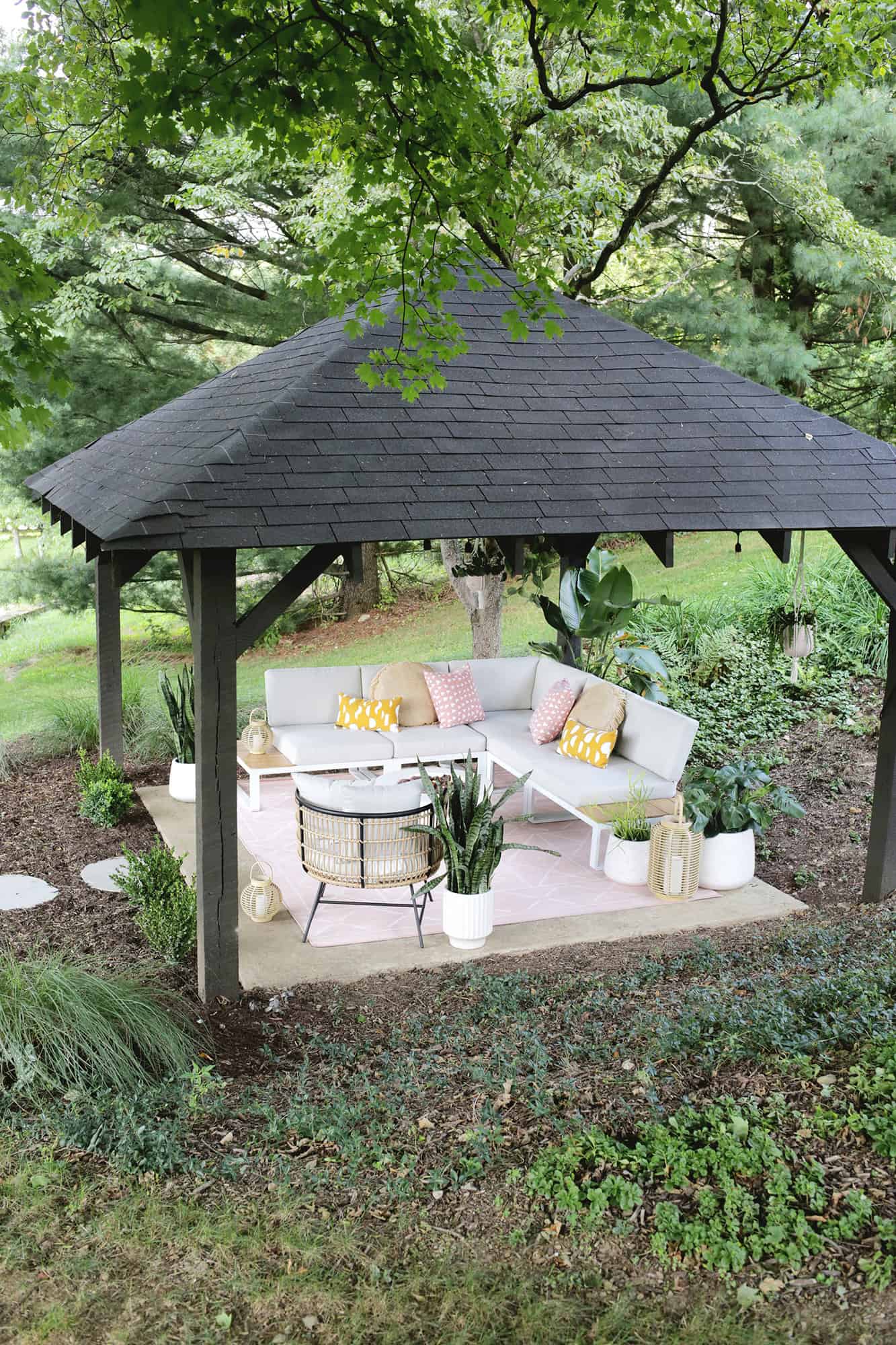
If you have an asphalt shingle roof that you don’t love the color of, you may have asked yourself, “Can you paint roof shingles?” The answer to that question (maybe to your surprise) is YES!
Painting shingles is a relatively easy process and can be a lot more budget-friendly than re-shingling the roof. We just completed a backyard makeover for our outdoor pavilion and I really hated the multi-colored brown shingles that topped the roof.
The color style really added to the feeling of it being a structure in a public park (rather than a more modern backyard oasis). When I found out it was possible to paint the asphalt shingles, I jumped at the chance.
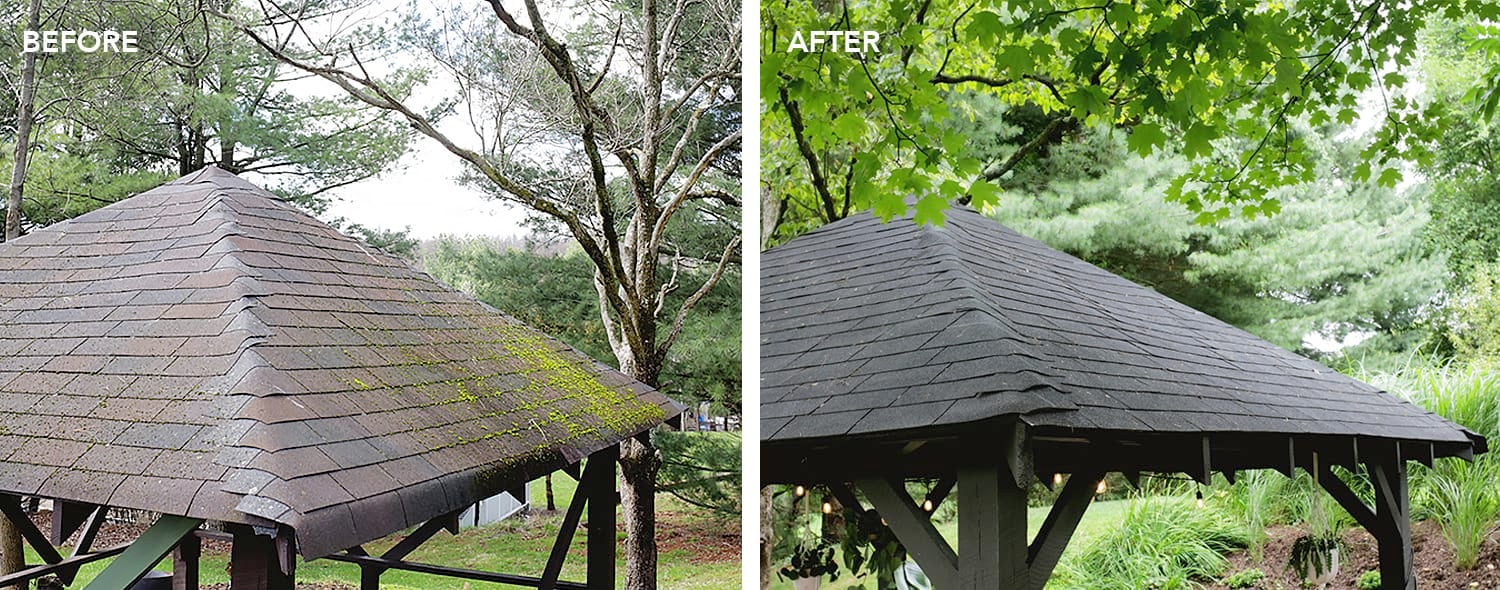

It’s a good idea to get a roof inspection done first so that you can spot any repairs that may need to be done before painting.
SAFETY NOTE: Any time there are roofs and ladders involved, make sure to take full safety precautions and work with a partner or proper fall arrest safety equipment if attempting to DIY this project.
If you don’t feel fully comfortable in being able to DIY this safely, hire professional roof washers and painters to do the job for you!
Do you have to use a special paint to paint roof shingles?
Yes! You’ll want to use an acrylic latex paint that’s recommended for outdoor use on roof items like shingles (Behr Multi-Surface Roof Paint or Sherwin Williams Resilience paint are good examples) to make sure to lengthen the life of your paint job.
The water-based paint will allow moisture to escape from the shingles so that algae and mold aren’t encouraged to grow.
Do you need to prime roof shingles before painting them?
Priming the shingles before painting them will help your final topcoat of paint adhere the best that it can for the overall best bond.
Use one that’s for all materials and can be used outside (like this Multi-Surface Exterior Primer) so that it will adhere to the shingles properly.
Can you paint a roof that’s in bad condition?
While you can technically paint a roof with shingles that aren’t in great shape (although any roof repairs should really be done before painting), it may not be worth the money and effort to paint the roof (if what you really need is a new roof overall).
Painting a roof won’t fix any leaking issues or areas where shingles may be lifting up, so it may be better overall to replace the roof and choose a new shingle color you like during a replacement rather than try and paint it.
Are there any cons to painting a shingle roof?
It’s a good idea to have the painted shingles inspected once a year to look for any signs of peeling or chipping. Extreme weather climates will accelerate the wear and tear of paint faster than moderate climates will.
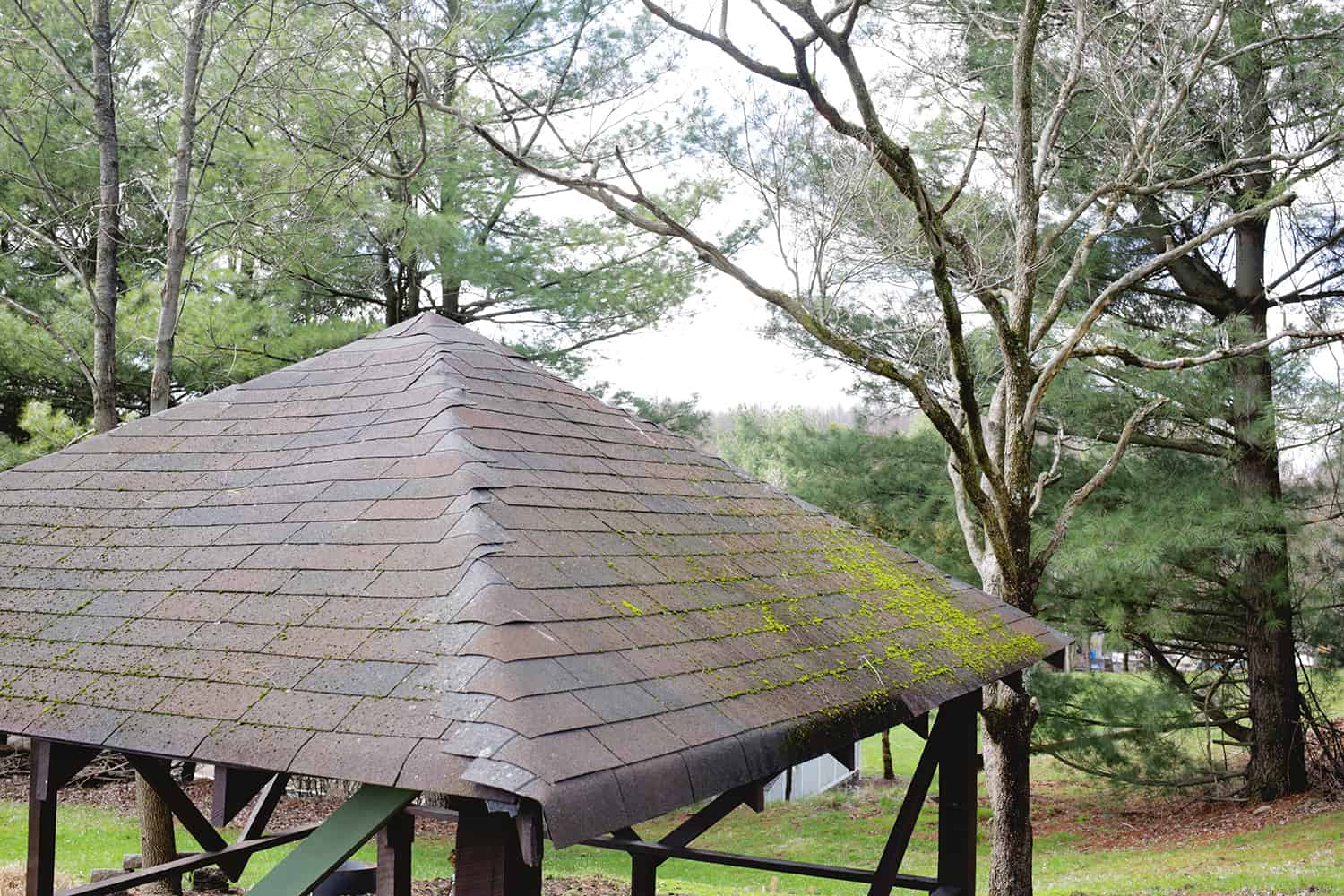
Step One: Clean the Roof
Like most painting projects, you want to clean the area you’re about to paint before you actually start painting. Roofs are no exception and you’ll especially want to clean spots that get less sun and have moss or algae growing on them.
Using a power washer is the most efficient way to clean a roof, which you can either do yourself if it’s a smaller lower structure like our pavilion and you have the power washer and ladder, or you can hire someone to wash it for you.
You can damage shingles by blowing water at them too hard (especially in an upward direction), so keep that in mind and have a professional do it if you don’t feel comfortable.
If the roof has a lot of algae, you may want to spray and apply a solution of 50% water and 50% bleach to kill the algae to keep it from coming back longer. Water any plants below the roof drip line well (if they are already wet it keeps the bleach from soaking into them).
Then, rinse the plants well again when you are all done applying your mixture to the roof. Allow the roof to dry completely before painting so you don’t encourage the growth of mold or wood rot under the paint.
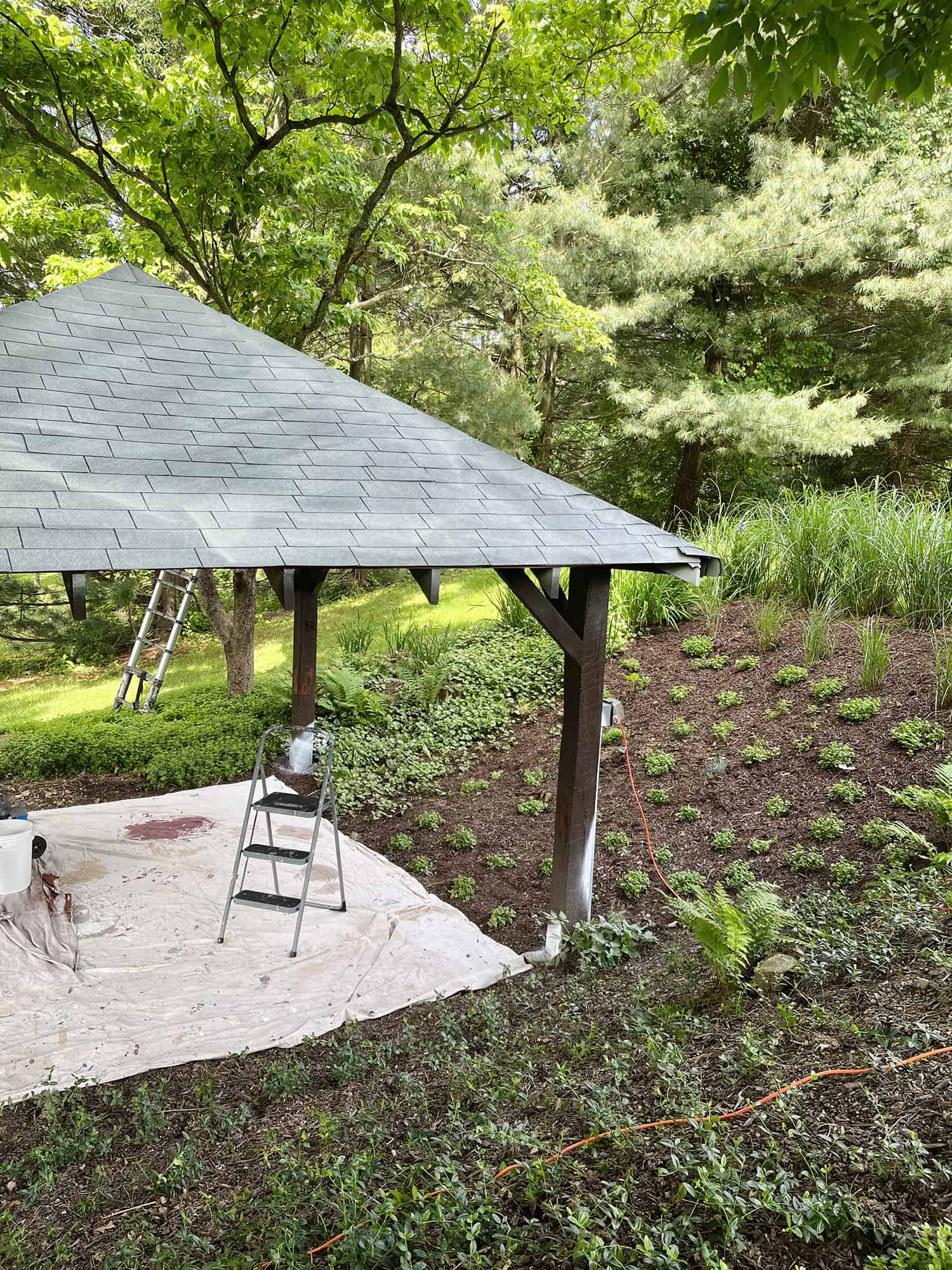
Step 2: Prime the Roof
While some paints may have a primer built in, it can be a good idea to use a bonding primer so that the paint will adhere to your shingles in the strongest bond. Something like this Multi-Surface Exterior Primer or this Extreme Bond Primer will do the trick.
Set up any drop cloths where needed to protect other areas or plants from overspray. Apply the primer in an even coat with a spray gun (you can also rent paint guns as well) and allow the primer to fully dry.
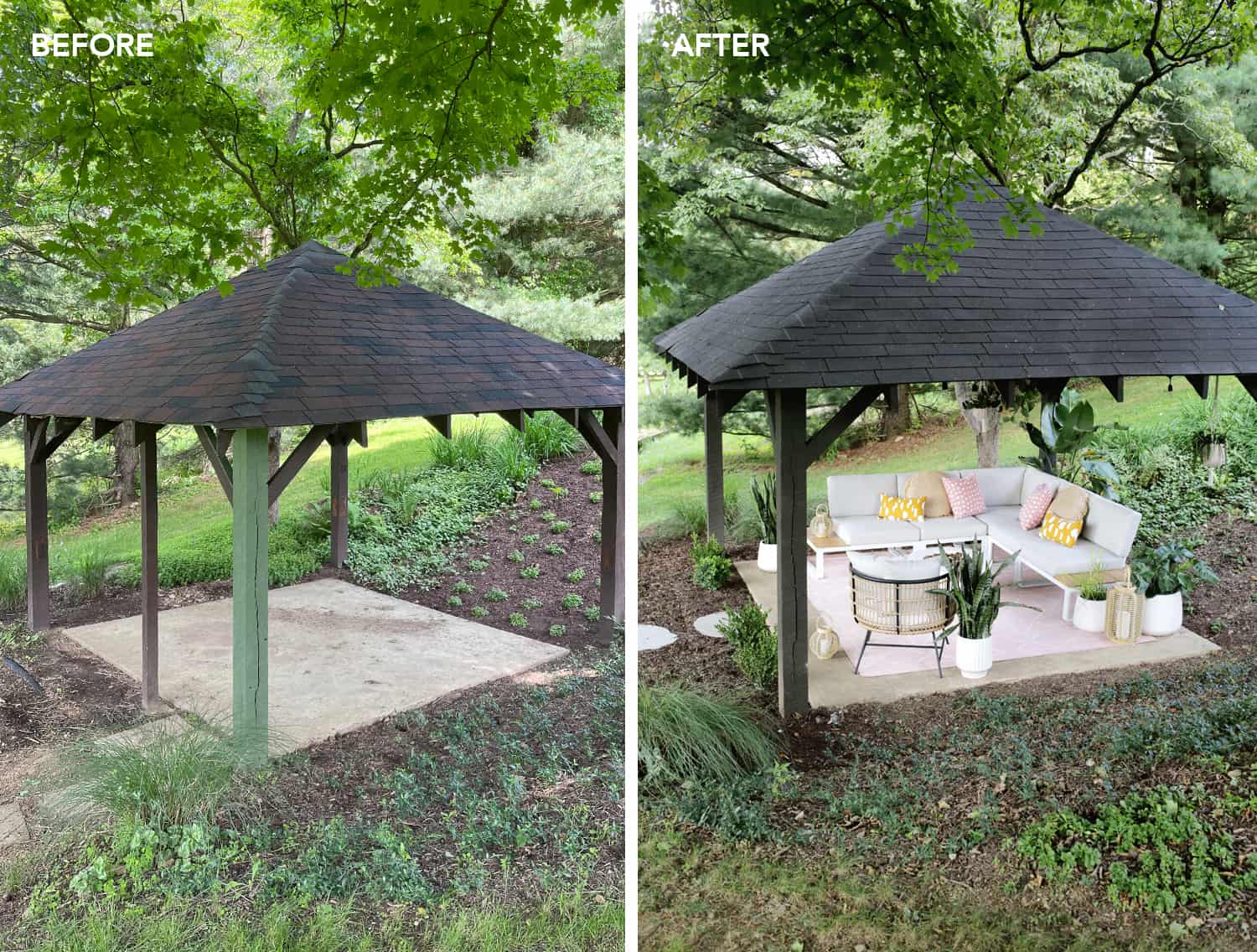
Step 3: Paint the Roof
Once your primer is dry, apply your roof paint in thin even coats with a sprayer, allowing adequate dry time in between coats until all the shingles are evenly coated.
This will most likely take at least 1-2 coats, but may need more depending on how thin you spray it and what color you are trying to achieve (the primer is white so dark final colors may take more coats to fully cover).
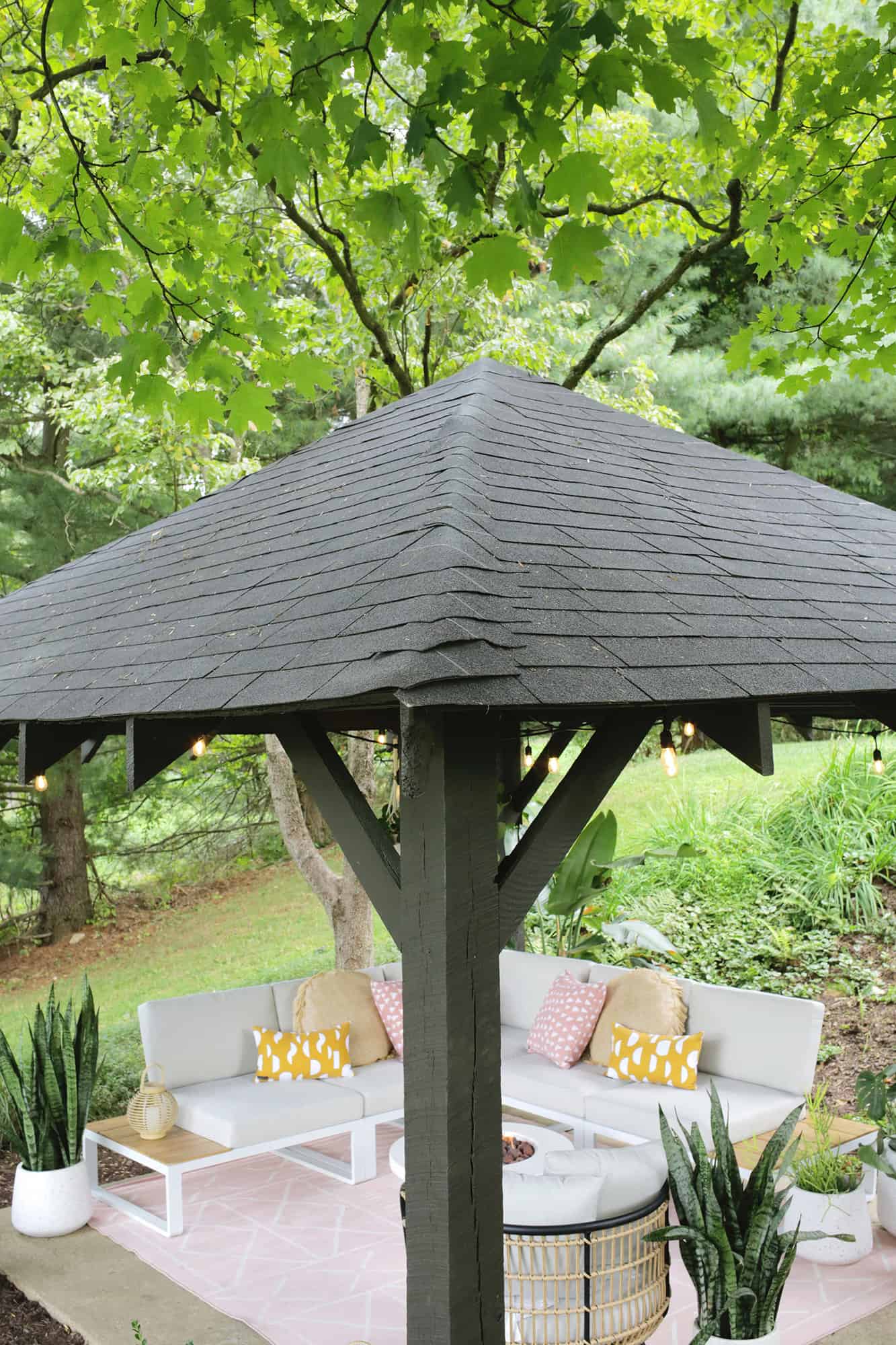
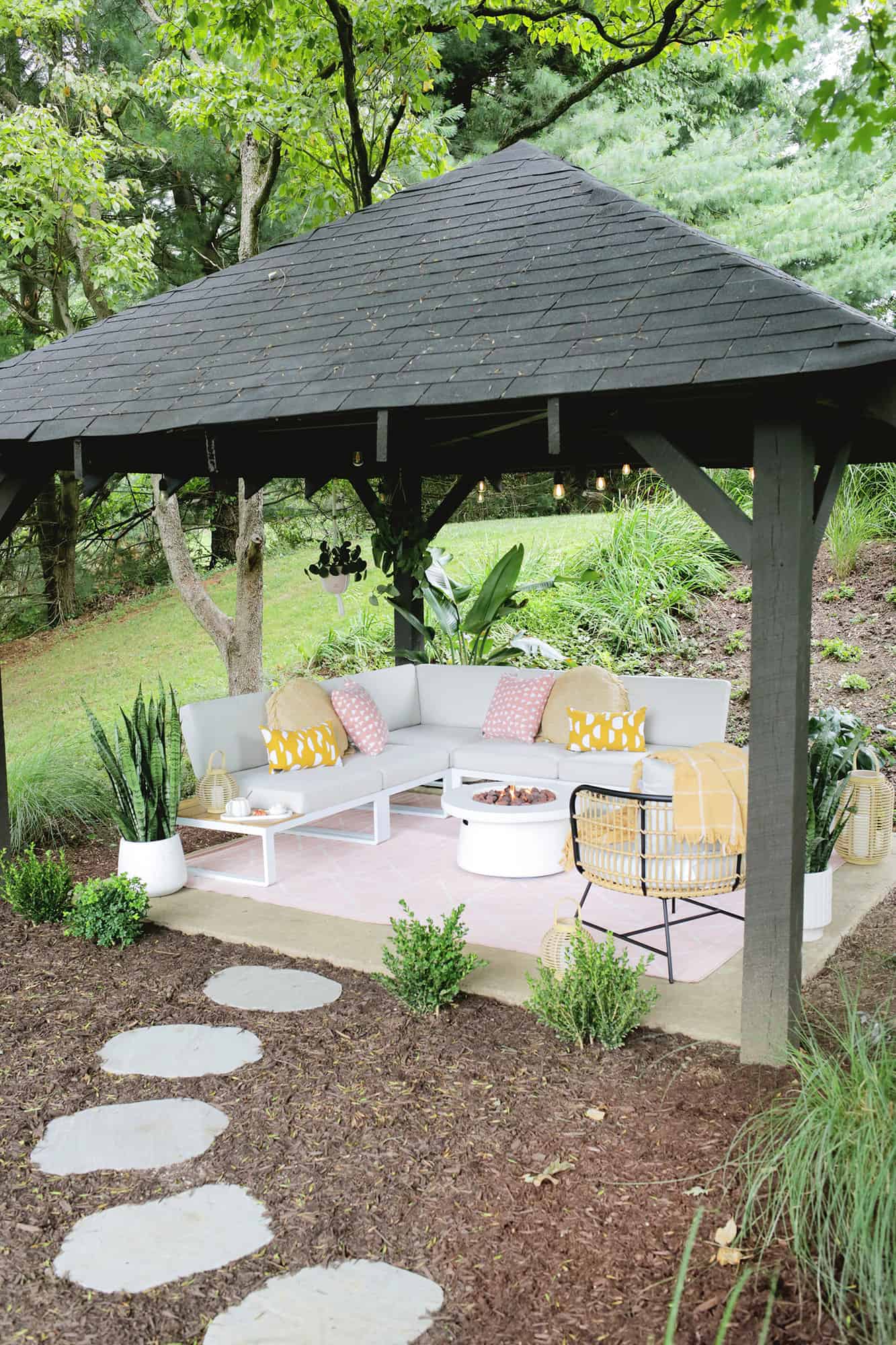
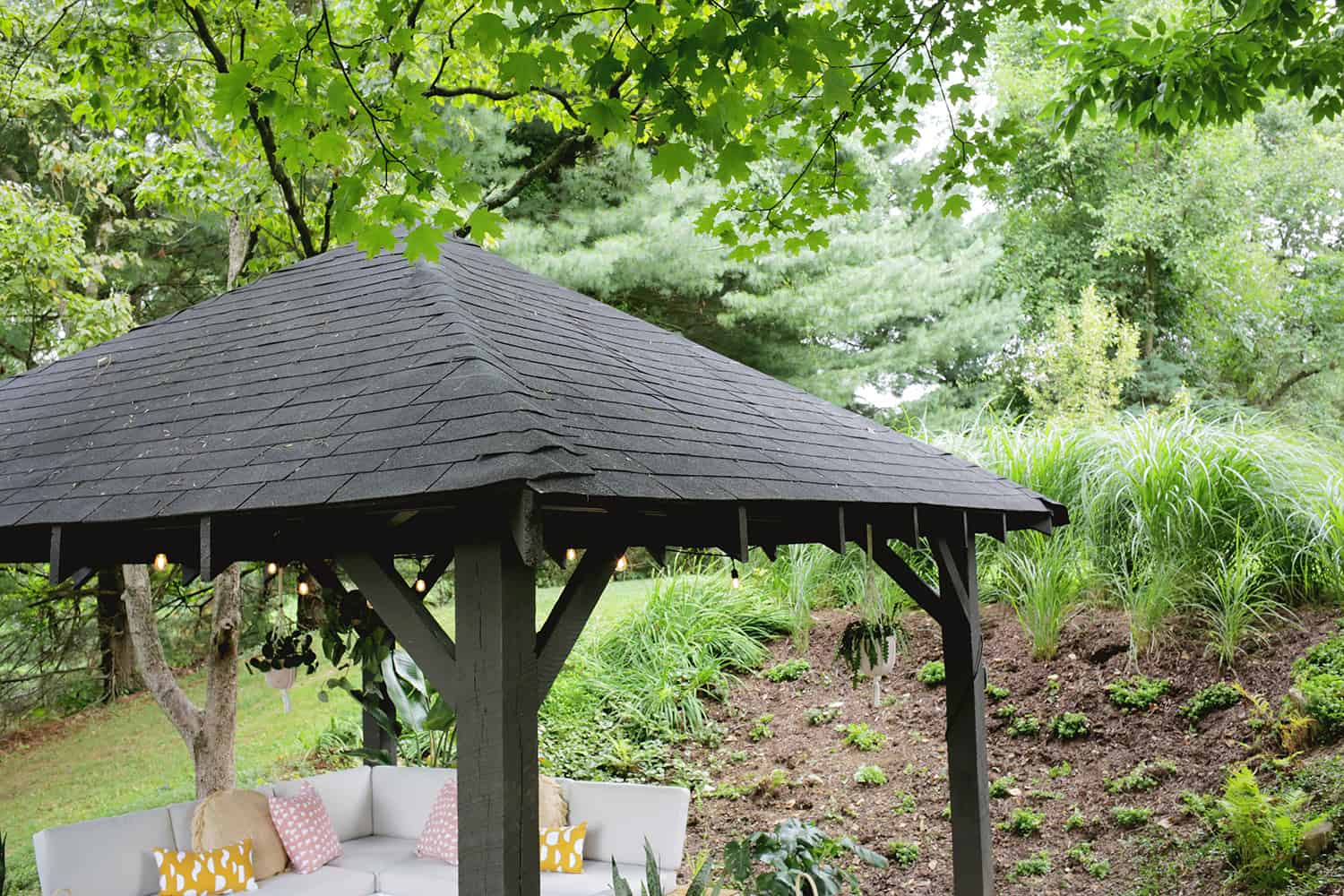
While painting a roof is a temporary improvement (several coats of paint can lengthen the life of a roof by protecting it from wear and UV damage which is a plus), it can be worth the effort, especially in cases like mine of a smaller structure where the overall cost was pretty low.
I’m really glad we decided to paint our shingles. The paint helped to modernize the look of the structure, protect the shingles a bit more over the next few years, and we didn’t have to replace the whole roof to achieve a similar look.
While painting may not be the best option in every situation, I’m glad we decided to go for it on our pavilion makeover! xo. Laura
